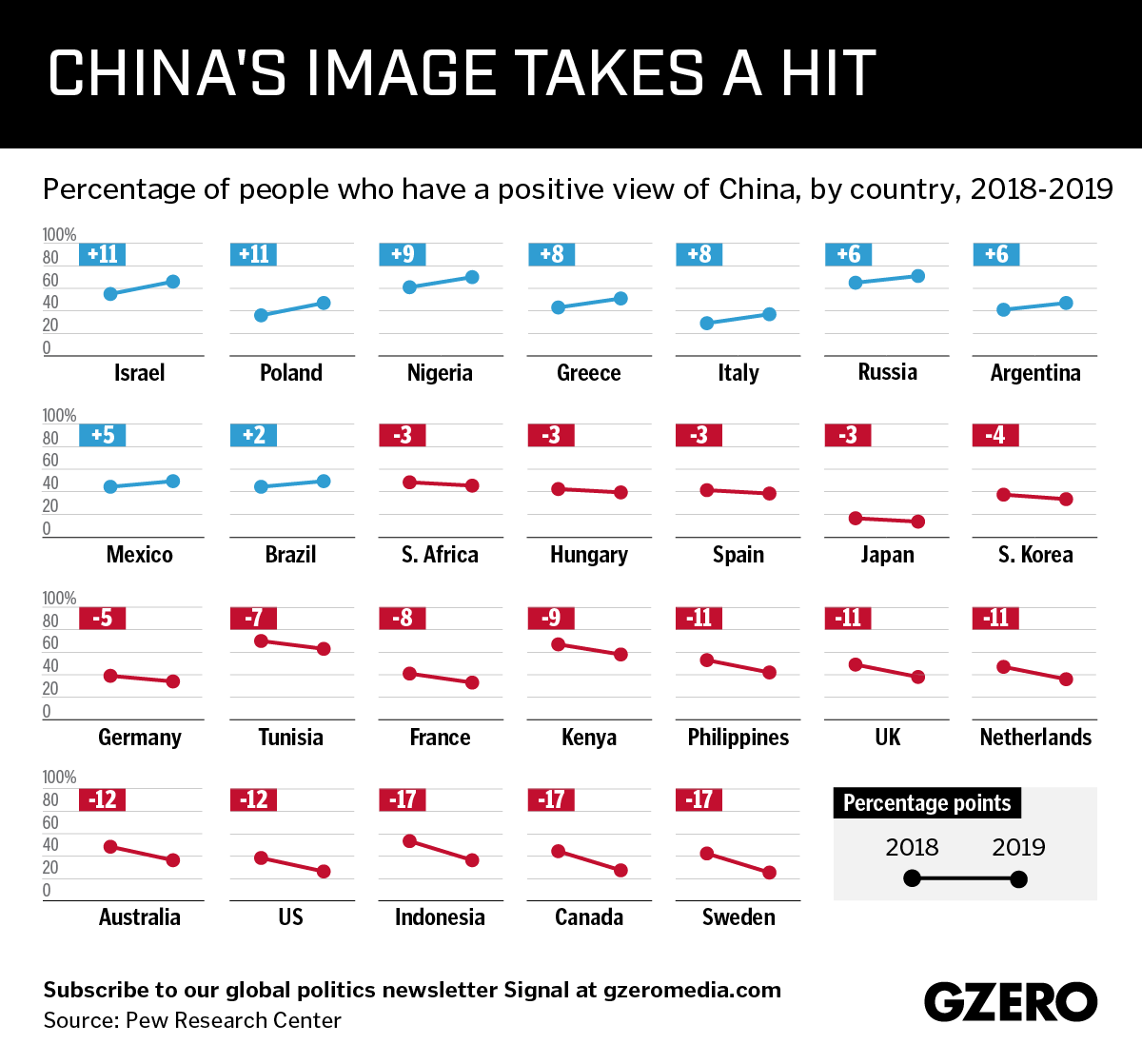October 03, 2019
China's leaders are intent on making the country into a global power these days, but as Beijing advances on the world stage, its image has taken a hit in many countries. A recent survey of around 35,000 people across 32 countries shows that majorities in most places agree that China's international clout is on the rise, but in half of countries surveyed from Western European the share of people who see China positively has dropped by double-digits over the past year. North America shows the most negative opinions of China on record, with less than 20 percent of people holding a positive view of the country. Meanwhile, majorities or pluralities in Middle Eastern, Latin American and sub-Saharan African countries recorded a favorable view of China. Here's a look at the numbers, by country, in 2018 vs 2019.
More For You
Mastercard Economic Institute's Outlook 2026 explores the forces redefining global business. Tariffs, technology, and transformation define an adaptive economy for the year ahead. Expect moderate growth amid easing inflation, evolving fiscal policies, and rapid AI adoption, driving productivity. Digital transformation for SMEs and shifts in trade and consumer behavior will shape strategies worldwide. Stay ahead with insights to help navigate complexity and seize emerging opportunities. Learn more here.
Most Popular
- YouTube
Despite a ceasefire in Gaza, Israel is still not letting foreign journalists in to independently verify what’s happening on the ground, CNN’s Clarissa Ward tells Ian Bremmer on GZERO World.
- YouTube
On Ask Ian, Ian Bremmer breaks down the steady escalation of US pressure on Venezuela and why direct military action is now a real possibility.
US President Donald Trump arrives to announce reciprocal tariffs against US trading partners in the Rose Garden of the White House in Washington, DC, USA, on April 2, 2025.
POOL via CNP/INSTARimages.com
From civil conflicts to trade wars to the rise of new technologies, GZERO runs through the stories that have shaped this year in geopolitics.
© 2025 GZERO Media. All Rights Reserved | A Eurasia Group media company.
